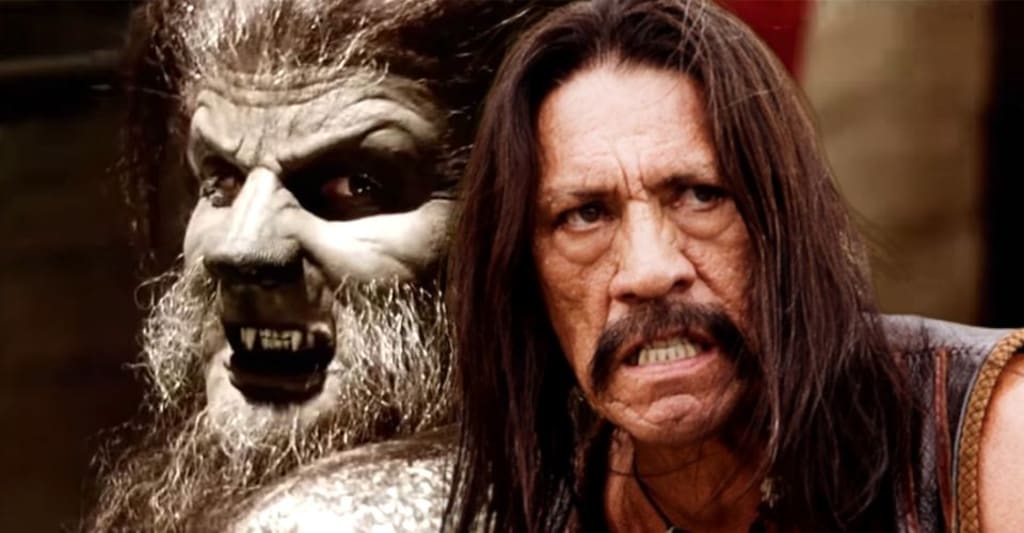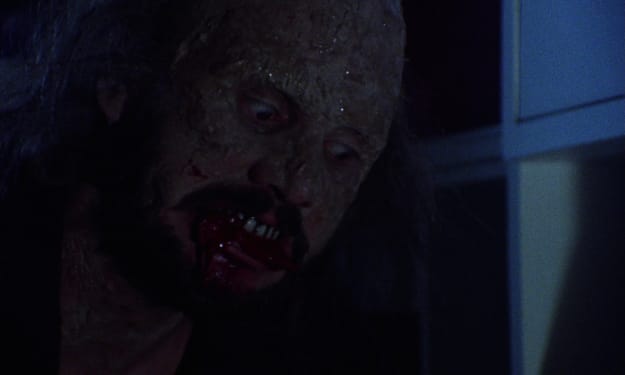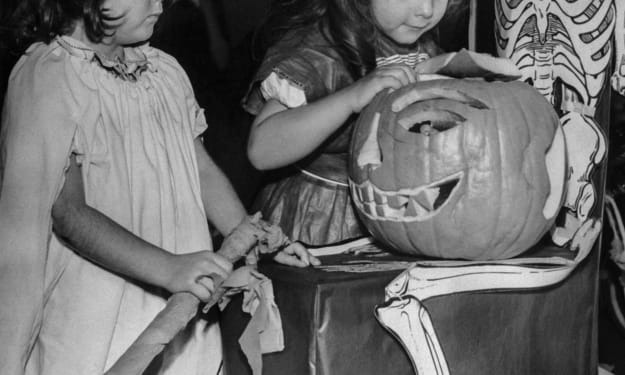EDITORIAL: Modern Exploitation Throwbacks
Back to the Ol’ Grindhouse

I’m somewhat of an aficionado of exploitation movies. The good ones are awesome and entertaining, and the bad ones are just plain fascinating. For those who don’t know, exploitation movies are movies that are typically low-budget, and whose major appeal/selling point is their (often excessive) lurid content, sometimes in reference to controversial topics of the time. And I’m certainly not the only fan of movies like these. Hell, I was born after the majority of the most beloved ones were made. But in the early 2000’s (beginning with movies like Rob Zombie’s House of 1000 Corpses and Eli Roth’s Cabin Fever), people started becoming nostalgic for these movies, and thus began the market for exploitation throwback films.
Now not every grindhouse-inspired film pays tribute in the same way. Some are straightforward, Mel Brooks-style parodies (like Black Dynamite or The Editor), some are campy, tongue-in-cheek stylistic homages (like Machete or Hobo With a Shotgun), and some are slightly more reverent tributes that are just picking up the torch (like VFW or Brawl in Cell Block 99). I love seeing movies like these, because you can always feel the passion the filmmakers have for the off-kilter style they’re imitating, and I most certainly recommend all of the films mentioned above. With this little op-ed, I’m gonna make mention of what I think are some of the most noteworthy exploitation throwback movies worth discussing.
Mandy (2018)
In 1983, Red (Nicolas Cage) and his wife, Mandy (Andrea Risenborough), live in a cabin in the mountains where he works as a lumberjack, and she works from home as an artist. A sick and depraved religious cult (is there any other kind?) kidnaps the two of them, and eventually, burns Mandy alive while Red watches. This, of course, sends Red on a brutal, sadistic quest for revenge. If that isn’t the perfect role for Nic Cage, I just don’t know what is.
Mandy ended up being my favorite movie of 2018, and it’s actually one of my favorite movies, period. It took some classic exploitation tropes (a man avenges the murder of his wife, graphic violence ensues) and combined it with imagery from pulp comics like “Heavy Metal” and Dario Argento-style psychedelic horror. The vibrant neon colors are used strategically, much in the same way as in Suspiria, to heighten the intensity, whether in its scenes of ultraviolent horror, or its gut-wrenching moments of pure heartbreak.
I'm a big fan of Nicolas Cage, and this is his best, and most powerful, performance in years, possibly since his Oscar-winning turn in Leaving Las Vegas. His trademark frenzied outbursts have never seemed more natural and appropriate. It’s a film characterized by its stylish insanity, and whether his bouts of hysteria are done while mourning or dismembering, this is a role that Nicolas Cage was born to play.
In the musical Jekyll & Hyde, the titular character (currently in his Hyde persona) uses the phrase “berserk and perverse” to describe the euphoric experience of being Edward Hyde. And that is exactly how I would describe Mandy: berserk and perverse. It somehow manages to be both an arthouse film and a sleazy exploitation flick in equal measure, defying, yet also embracing, the rhythms and conventions of both. It’s creative, it’s trippy, it’s bloody as all hell; it’s a truly one-of-a-kind experience.
Green Room (2016)
After a struggling punk band (including the late Anton Yelchin) is forced to play a gig at a neo-Nazi bar, they witness a murder and find out that the bar is a front for a drug-dealing operation. Now, the band members find themselves trapped inside and must fight their way out.
Now Green Room wasn't necessarily wearing its influences on its sleeve to the same degree as a lot of these other movies. In a way, it's more of modern equivalent than it is a direct homage. However, one can clearly see the influence of certain exploitation movies. The filmmakers even specifically cited John Carpenter's Assault on Precinct 13 as a major inspiration, and it is quite evident. Green Room, however, is far more graphic, which one would expect from a more horror-based film in that same vein. The violence is incredibly effective. In fact, there were a couple of particularly gruesome moments that actually got a wince out of me.
One really fun aspect of the film is that the main villain is actually played by Sir Patrick Stewart. He jumped at the chance to play this character because it truly is unlike any character he's ever played. Now, he doesn't necessarily transform himself, per say. It is still Patrick Stewart, but it's so cool to see him play such a vile character.
It's just a damn cool movie. It's a toe-curling whirlwind of intensity that grips you tightly and never lets go. The savage nature of the film suits the story perfectly, and the script never descends into melodrama. It's a brutal thriller that enthusiastically assaults its characters (and its audience) with sadistic violence, and it had me on the edge of my seat on multiple occasions.
The Devil's Rejects (2005)
After escaping a police raid on their farm, half-sibling serial killers Baby Firefly (Sheri Moon Zombie) and Otis Driftwood (Bill Mosely) retreat to find their equally-sadistic killer clown father, Captain Spaulding (Sid Haig). The three proceed to kidnap and torture some people in order to satisfy their cruelty.
The Devil's Rejects was written and directed by Rob Zombie, and is actually the middle entry in a trilogy of films about these maniacal killers. The first was the fun, but fairly uneven, House of 1000 Corpses in 2003, and the third being the slightly more polished 3 From Hell from last year. Most fans agree that The Devil's Rejects is the superior entry, so I've elected to focus in on that one.
Rob Zombie isn't exactly a fantastic filmmaker. His movies always tend to be a little... sloppy. They are also never particularly pleasant. But that's just it. His work is inspired by lots of classic exploitation horror movies like The Texas Chain Saw Massacre and The Last House on the Left (he just doesn't have the brilliant eye of Tobe Hooper or Wes Craven). It's only natural that his films would be grim and brutal. While the film is hardly tongue-in-cheek, it makes no qualms about imitating the style of these films. This movie, however, is far, far gorier. It's honestly one of the nastiest horror films I've seen. The titular characters are mean-spirited and just plain evil. But at the same time, you kind of enjoy seeing them interact with each other. Their family dynamic is oddly fun, despite the fact that their actions are so reprehensible. That's not to say you're rooting for them, but they are just entertaining enough to want to see more. And Bill Mosely and Sid Haig are just so damned great.
The Devil’s Rejects may not feature much better-than-average work behind the camera, but its decidedly vicious and depraved brand of horror is refreshingly nasty, and its game cast elevate it beyond your typical sleazefest.
Planet Terror (2007)
In the year 2007, beloved action/thriller auteurs Robert Rodriguez and Quentin Tarantino teamed up to create Grindhouse, an experimental cinematic experience to pay homage to the exploitation classics of yesteryear. It was a double feature of grindhouse tributes from Rodriguez and Tarantino, complete with fake trailers made by guest directors Eli Roth, Rob Zombie, and Edgar Wright, along with another by Rodriguez himself (which would eventually be brought to feature-length realization as Machete). It wasn’t particularly popular with more mainstream audiences, but it was an instant cult favorite among fellow exploitation enthusiasts. Planet Terror was Rodriguez’s feature.
Planet Terror is the story of a one-legged stripper (Rose McGowan), a mechanic (Freddy Rodriguez, no relation to Robert), a sheriff (Michael Beihn), and a doctor (Marley Shelton) banding together to fend off a horde of ravenous zombies created by a bio-weapon that was released upon the world. Oh yeah, and it also feature Josh Brolin and Bruce Willis in supporting roles. How awesome is that?
This was a more playful and campy film. The villains are chewing the scenery, there’s a lot of gross-out humor, and of course, a very intentional low-budget look and feel. Hell, even the title is pretty goofy. But it’s also clearly all done out of great love for its influences. It even features a synth-heavy, John Carpenter-like score. Fun fact: Rodriguez actually reached out to John Carpenter to ask if he would score the film himself, but was unable to do so because of scheduling conflicts. The zombies, themselves, are also directly inspired by various Italian zombie flicks, of which I am a massive fan.
Planet Terror is a blood-soaked, cringe-inducing love letter to 70’s action and horror, and it's a total blast from start to finish. Featuring many nods to the works of John Carpenter, Jack Hill, Lucio Fulci, and the like, it also displays a clear style that Rodriguez has developed by taking various cues from those to whom he pays tribute.
Death Proof (2007)
And now we come to Quentin Tarantino’s contribution to Grindhouse. In Death Proof, a former stuntman (Kurt Russell) uses his specially-equipped “death proof” car to rundown and kill beautiful young women for fun. But when he pisses of the wrong three women (Rosario Dawnson, Tracie Thoms, Zoë Bell), they decide to fight back, and a deadly game of cat-and-mouse ensues.
Death Proof is very unique. While Robert Rodriguez’s film was tongue-in-cheek, occasionally bordering on parody, Tarantino’s is a bit more layered. In a sense, just about all of his movies are homages to classic exploitation subgenres. Kill Bill is a nod to ultra-violent samurai and kung fu movies, Django Unchained is a tribute to spaghetti westerns and blaxploitation movies, etc. Death Proof, on the other hand, is much more of an experiment.
Quentin actually perfectly recreated a 70’s exploitation film. It just literally feels like one. Everything, from the film grain to the camerawork to the loud, annoying characters to the just plain grimy feel to it, is just absolutely spot-on. He didn’t so much make an homage. He made a replica. It’s actually the only Tarantino film that my dad really didn’t like, because it doesn’t even feel like a Tarantino film. In fact, a lot of Tarantino fans don’t like it for that very reason. And that’s the genius of it. It doesn’t even feel like one of his movies. It is, however, the kind of film only someone like him could make.
Death Proof is a quirky and underrated work of experimental filmmaking for which Tarantino deserves commendation. He brings his signature gory violence back to the source, paying direct homage to the exploitation flicks he clearly admires. The intentionally shoddy production values and obnoxious tone too often cause people to overlook this gem, but that type of attention to detail is exactly what makes this film brilliant.
Final Thoughts
Obviously, there are a plethora of other grindhouse throwbacks that are worth checking out, and I could never list all of them. Mandy happens to be my personal favorite, but there are so many others featuring a variety of different approaches. It really goes to show how influential classic exploitation movies were and still are. Despite being shunned and reviled by the mainstream, they will always hold a special place in the hearts of plenty of sickos like me.
About the Creator
Will Lasley
I’m an actor and director of stage and screen. But I also dabble in standup, and on this site, horror movie criticism. I’m just a guy who loves horror movies, and I like to share that love with the world.






Comments
There are no comments for this story
Be the first to respond and start the conversation.